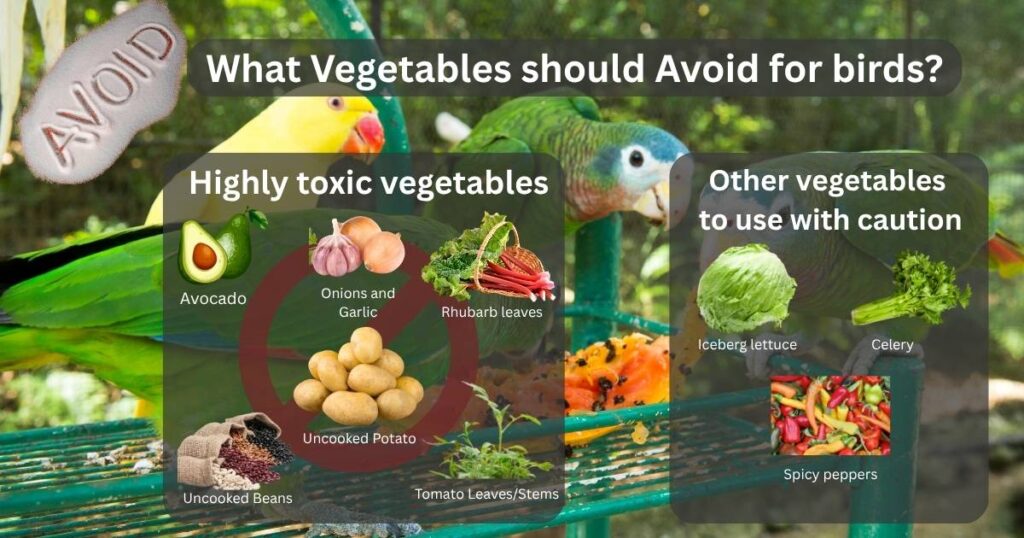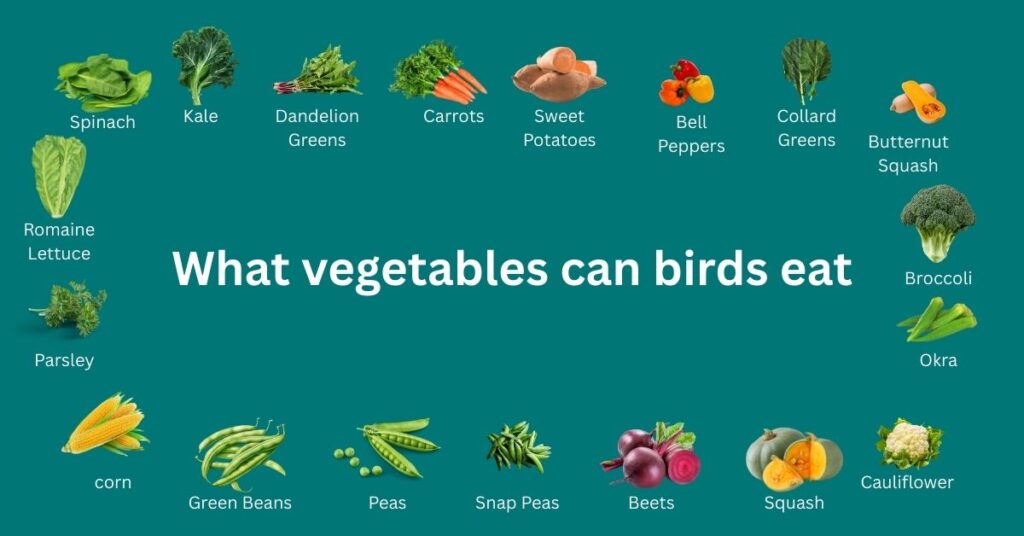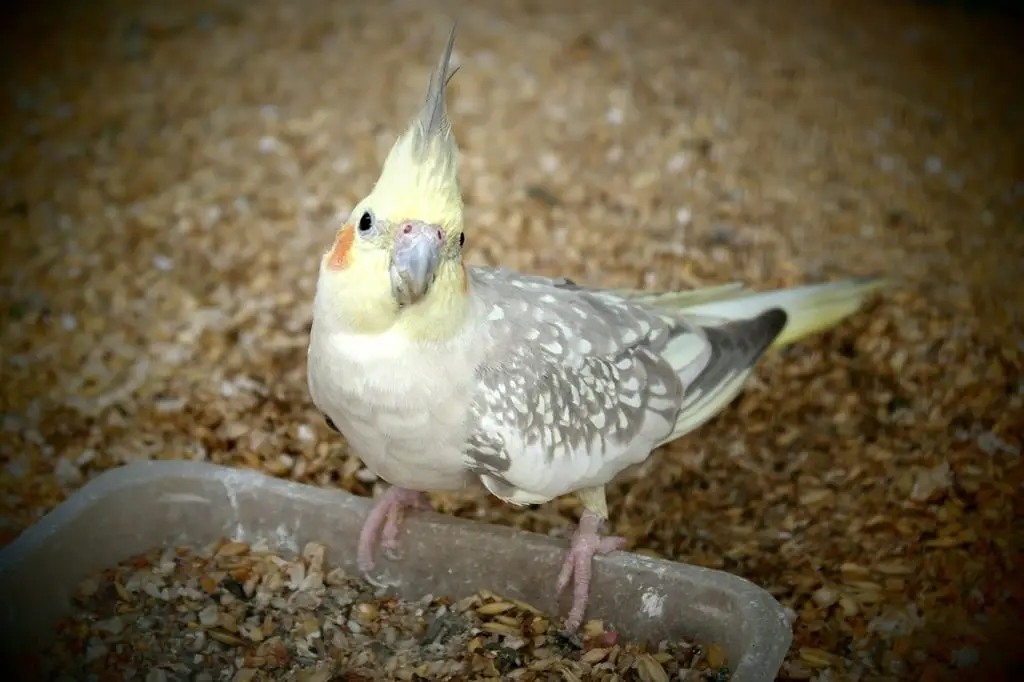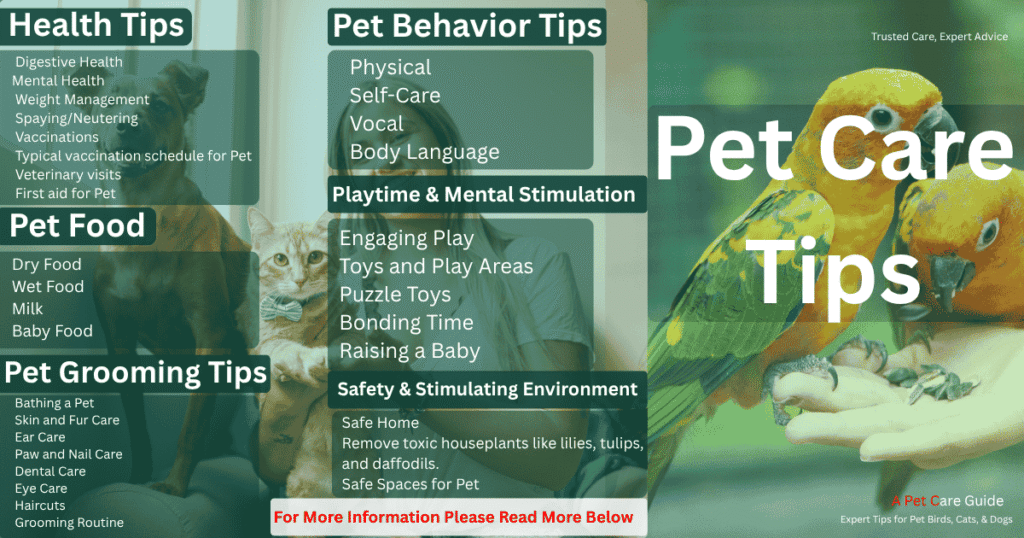Birds bring so much joy to our homes, and keeping them healthy is a top priority for any pet owner. A big part of that is making sure they get the right nutrients, and that’s where vegetables come in. Just like for us, I think a balanced diet with lots of fresh veggies is a game-changer for a bird’s health.
Vegetables pack a punch with essential vitamins, minerals, and fiber, helping to keep your feathered friend vibrant and full of life. A Pet Care Guide shares a perfect, safe vegetables guide. This guide will walk you through what vegetables can birds eat safely, how to prepare them, and what to avoid.
The Importance of a Balanced Diet for Birds
I believe that a truly balanced diet for your bird is more than just seeds. While seeds are an energy source, they often lack the full spectrum of nutrients a bird needs. A healthy diet combines high-quality pellets, a variety of fresh fruits and vegetables, and a small number of seeds or nuts. Variety is the most important thing because it ensures your bird gets all the necessary vitamins and minerals to thrive.
The benefits of vegetables for birds are huge. They provide key nutrients like:
Vitamins: Vegetables offer Vitamin A, C, K, etc. Vitamin A is crucial for good eyesight and immune function. Vitamin C boosts the immune system, and Vitamin K is important for blood clotting.
Minerals: Vegetables offer minerals like calcium, which is vital for strong bones and egg-laying hens, and potassium, which helps with nerve and muscle function.
Fiber: Many vegetables have a lot of fiber. Fiber helps a bird’s digestive system run smoothly, preventing issues and promoting overall gut health.
Antioxidants: These compounds fight against cell damage and can help prevent disease.
Offering fresh, natural vegetables is a wonderful alternative to a diet of mostly processed or seed-based foods. Seeds can often be high in fat and low in other nutrients, which can lead to obesity and health problems. By adding a colorful mix of vegetables, you’re setting your bird up for a healthier and happier life.
The Best Fresh Veggies For Birds
I absolutely love watching my birds try new foods! Fresh vegetables are, in my opinion, the best way to boost their health and happiness. We’re going to look at my favorite picks, from leafy greens like kale to crunchy carrots. It’s such an exciting way to add wonderful variety to their meals.
Can Birds Eat Artichokes?
Yes, but I’m always careful with these. Birds can eat the cooked heart and the soft, fleshy parts of the leaves. I make sure to remove all the tough, stringy outer parts and that fuzzy center (the “choke”). Those bits are just too hard or dangerous for them to handle.
Can Birds Eat Spinach?
Absolutely, but I use this one in moderation. Spinach contains something called oxalic acid, which can interfere with calcium absorption if they eat too much is eaten. Because of this, I treat it as an occasional healthy snack, not a daily meal. A little leaf now and then is perfectly fine!
Can Birds Eat Sprouts?
Oh, my birds go wild for these! Sprouts are a fantastic “living” food, just bursting with nutrition. I find that alfalfa, broccoli, or bean sprouts are a huge hit. They are so easy for birds to eat and digest. A truly wonderful and exciting snack to add to their bowl.
Can Birds Eat Asparagus?
Yes, they can. I’ve found that raw asparagus is just too tough for their beaks. Instead, I always cook it lightly (steaming or boiling works great) until it’s just tender. Then, I chop it into tiny, manageable pieces. It becomes a fun, sticky treat for them to chew on.
Can Birds Eat Carrots?
This is a definite favorite in my house! Carrots are fantastic. Both the orange root (packed with Vitamin A) and the leafy green tops are perfectly safe and healthy. I love to serve the carrots raw and shredded, or sometimes I’ll lightly steam them and dice them into little cubes.
Can Birds Eat Snap Peas?
These are so much fun for them. Birds can eat the entire pod, peas and all. I usually chop the pods into smaller sections, just to make it a bit easier for my birds. They really seem to love that sweet crunch and the fun of “opening” the pod to get the peas.
Can Birds Eat Green Beans?
Another big winner! Green beans (or string beans) are perfectly safe for birds, either raw or cooked. Personally, I prefer to steam them for just a minute to soften them up, then I dice them. They are a wonderful, crunchy source of vitamins, and my birds really enjoy them.
Can Birds Eat Broccoli?
Yes, this is a real powerhouse vegetable for them. My birds happily eat the florets, the stems, and even the leaves. I just wash it well and offer small, raw pieces. It’s packed with so many good nutrients and gives them something substantial and fun to chew on.
Can Birds Eat Cauliflower?
Just like its cousin broccoli, cauliflower is a safe and healthy choice. I give my birds small, raw florets. They seem to enjoy the crumbly texture and have a good time breaking it apart. It’s a fun, textured food for them to try, and I feel good giving it to them.
Can Birds Eat Sweet Potatoes?
My birds adore this, but this is one you must cook. Never serve sweet potato raw. I just bake or boil it until it’s very soft, then I let it cool. You can serve it mashed or in small cubes. It’s an amazing, nutrient-dense food that they get very excited about.
Can Birds Eat Squash?
Yes, most types of winter squash are fantastic. Varieties like acorn or spaghetti squash are all safe. I always cook them until they are soft (baking is easiest), and I make sure to scoop out the seeds before I serve them. It makes for a wonderful, warm, and soft treat.
Can Birds Eat Zucchini?
This is a fantastic, soft veggie for birds. Unlike winter squash, I offer zucchini raw. I usually shred it or cut it into small cubes. It’s full of moisture, which is great, and it’s very easy for them to eat. It has become a perfect, light snack in my home.
Can Birds Eat Bell Peppers?
All colors are a go! Red, yellow, orange, and green bell peppers are a wonderful, crunchy snack. I serve them raw. My birds seem to love the crisp texture. And don’t worry about the seeds, the seeds inside are perfectly safe for them to eat, too.
Can Birds Eat Hot Peppers?
This one always surprises people: yes, they can! Birds don’t have the same receptors (capsaicin) as we do, so they don’t feel the “heat.” They can eat hot peppers like jalapeños just fine. In fact, the seeds are often their favorite part. It’s amazing to watch!
Can Birds Eat Corn?
They absolutely can, but I always use this as a treat. Corn is quite high in sugar, so I don’t offer it every single day. A few fresh or cooked kernels (I avoid the canned, salty stuff) make for a very exciting and sweet snack that they truly love.
Can Birds Eat Peas?
Yes, these are wonderful little snacks. Fresh or even frozen (just make sure to thaw them first) peas are great. I just sprinkle a few in their food bowl. They are sweet, soft, and so easy for small beaks to manage. My birds love chasing the little green balls around the dish.
Can Birds Eat Beets?
Absolutely. Both the beet root and the green leafy tops are packed with nutrition. I usually offer the root lightly steamed and diced. But, I’ll give you a friendly warning: it can make their droppings a bright red color! This can be scary if you forget, but it’s totally harmless.
Can Birds Eat Okra?
This is a fantastic and unique choice. The pods, seeds, and even the leaves are all safe for them. I just chop the pod into small, raw “coins.” My birds are always so curious about the unique texture. It’s a great way to introduce them to something new.
Can Birds Eat Parsley?
I am very careful with this one. Parsley is a bit controversial; some people worry it’s toxic in large amounts. I’ve found that a tiny nibble of this flat-leaf or curly herb is okay. Honestly, with so many other great greens, I usually just offer kale or dandelions instead.
Can Birds Eat Butternut Squash?
Just like the other squashes, this is a wonderful food for them. It absolutely must be cooked until it’s nice and soft. I like to bake it, scoop out the flesh, and let it cool. I serve it mashed or in small chunks. A very healthy, warm, and comforting meal.
Can Birds Eat Kale?
This is one of the best greens you can offer. Kale is a true nutritional powerhouse. I just wash the leaves well, tear them into large pieces, and clip them to the cage bars. My birds have a wonderful time tearing it apart. It’s food and fun all in one.
Can Birds Eat Collard Greens?
Another amazing dark leafy green! I treat these exactly like I treat kale. Just wash them well, tear them up, and serve them raw. They are nice and tough, so they give the birds a really fun challenge to rip apart. It’s a great activity for them.
Can Birds Eat Dandelion Greens?
A fantastic and often free food! The most important thing here is that you must pick them from an area you know is free of all pesticides or chemicals. I wash them thoroughly. My birds go absolutely wild for them; they are a huge favorite.
Can Birds Eat Romaine Lettuce?
This is a good choice for a crunchy, watery treat. It doesn’t have as many nutrients as kale or dandelions, but it’s much, much better than iceberg lettuce. I love to use it for a hydrating snack on a particularly warm day. My birds really enjoy the crispness.
What Vegetables should Avoid for birds?

Just as there are many safe vegetables, there are also some that are harmful. Knowing what vegetables can birds eat is just as important as knowing what they can’t. Now, A Pet Care Guide shares what vegetables birds can’t eat.
- Avocado: This is highly toxic to birds. Even a tiny amount can cause serious health problems or even death. Never give your bird any part of an avocado.
- Onions and Garlic: Can cause digestive issues or be toxic to birds. It’s best to keep them away from your pet.
- Uncooked Beans: Raw beans contain a toxin that is dangerous for birds. Always cook beans thoroughly before offering them.
- Rhubarb: This vegetable contains oxalic acid, which can be dangerous for birds. Avoid it entirely.
How to Feed Vegetables to Birds
Giving your bird vegetables isn’t as simple as just putting them in the cage. Proper preparation is essential. Now, A Pet Care Guide gives an idea about how to Feed Vegetables to Birds Safely.
Variety is Key
Think of your bird’s diet like a rainbow. Offering a wide range of what vegetables birds can eat ensures they get a full spectrum of nutrients. Please don’t stick to the same one or two vegetables; rotate them daily or weekly.
Proper Preparation
- Chop into Bite-sized Pieces: Always chop vegetables into small, manageable pieces. This makes it easy for your bird to pick up and eat without choking.
- Cook Certain Vegetables: Some vegetables, like sweet potatoes, need to be cooked to make them safe and easy to digest. Cooking also breaks down nutrients, making them easier for the bird to absorb.
- Wash Thoroughly: Always wash all vegetables thoroughly before you offer them. This removes any pesticides, dirt, or bacteria that could be harmful to your bird.
- Avoid Added Seasonings: Never add salt, pepper, or other spices to your bird’s food. These can be very harmful to their system.
Introduce New Vegetables Slowly
When you introduce a new vegetable, do it gradually. Start with a tiny amount and watch your bird’s reaction. This helps their digestive system adjust and prevents any upset stomachs.
Observe Bird’s Reaction
After you give your bird a new vegetable, keep an eye on their behaviour and droppings. If you notice any unusual changes, stop feeding that vegetable and consult with a vet.
Common Mistakes to Avoid When Feeding Vegetables to Birds
Even with the best intentions, it’s easy to make mistakes.
- Overfeeding Certain Vegetables: Too much of a good thing can be bad. For example, overfeeding spinach can cause problems because of the oxalates. Remember that variety is the goal, and don’t give too much of any single vegetable.
- Ignoring Individual Preferences: Every bird is an individual. What vegetables one bird can eat might not be what another bird likes. Don’t force them to eat a vegetable they don’t like. Keep trying different ones until you find what they enjoy.
- Not Offering Variety: Relying on just a few vegetables can lead to nutrient imbalances over time. Keep things interesting and healthy by rotating what vegetables your birds can eat.
Veggie Safety Tips For Birds
Before I give my birds any of these yummy veggies, I follow a few simple rules that have always worked for me.
- Wash Everything: I always, always wash vegetables under running water. I do this to get rid of any pesticides or bacteria. I just think of it like preparing food for my own family.
- Chop It Up: I make sure to cut veggies into small, manageable pieces. Think “beak-sized.” For my smaller birds, shredding or mincing works best.
- No Seasoning, Ever: This is a big one for me. I never add salt, butter, oil, or any spices. Birds need their food plain and natural.
- Remove Old Food: Fresh food can spoil very quickly. I make it a rule to take out any uneaten veggies after a few hours to keep things clean and safe.
Final Thoughts about what vegetables can birds eat
Feeding your bird a healthy and varied diet is one of the best things you can do for their long-term health. Knowing what vegetables can birds eat and how to prepare them is the first step. By offering a colourful mix of safe vegetables and avoiding the harmful ones, you can help your bird live a happy and healthy life.
Experiment with different veggies and have fun providing a balanced diet for your feathered friend. If you ever have any concerns, don’t hesitate to consult with an avian vet.
FAQ About Which vegetables can birds eat
How many vegetables should I feed my bird daily?
The amount varies depending on your bird’s size, but a good rule of thumb is to make vegetables about 15-30% of their total daily diet.
Can I feed my bird frozen or canned vegetables?
Frozen vegetables are a great option, just be sure to thaw them first. Avoid canned vegetables because they often contain a lot of sodium and preservatives that can be harmful to your bird.
Are vegetable seeds and peels safe for birds?
For many vegetables, like bell peppers and cucumbers, the seeds and peels are perfectly safe. However, always do a quick search for the specific plant to make sure.
Don’t forget to share your experiences!
What vegetables can birds eat that your pet loves the most? Share your stories and questions in the comments below. For more tips on bird care and healthy feeding practices, follow us on social media!


